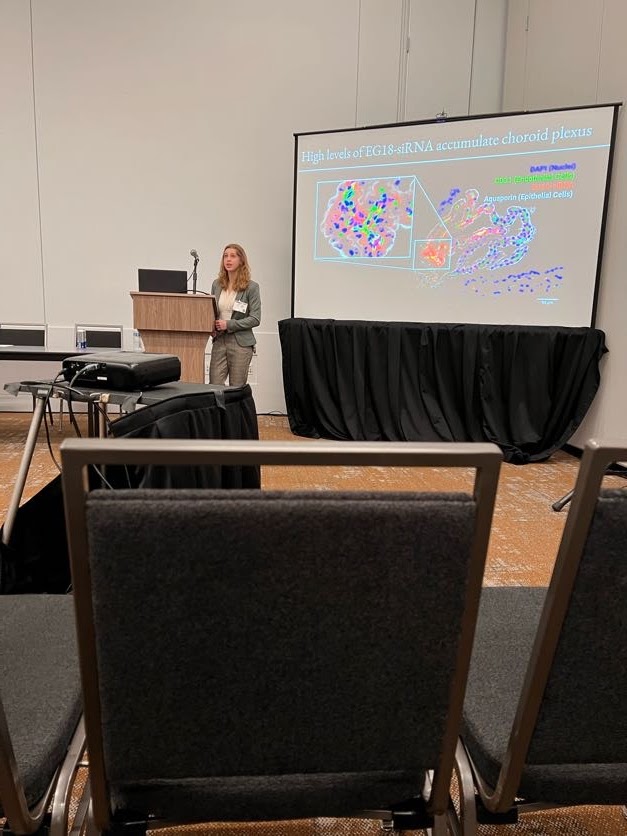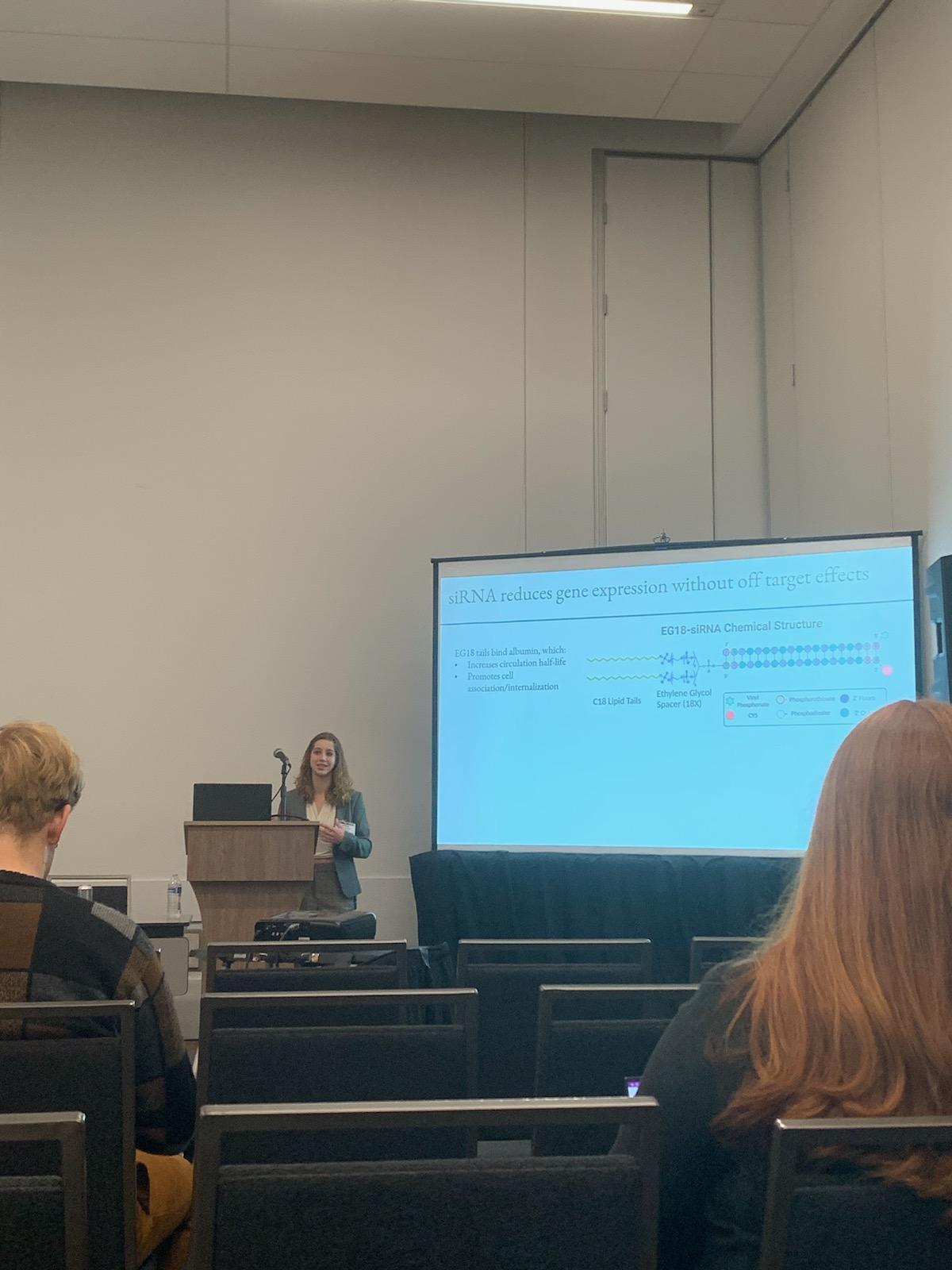Drug Delivery to the Brain’s Barriers
Despite a growing need for therapeutics that can mitigate neurological dysfunction, there remain few viable platforms capable of transcytosis due to the stringent barriers of the brain. A collaborative effort between Dr. Ethan Lippmann’s and Dr. Craig Duvall’s laboratories at Vanderbilt University seeks to change that. My project is motivated by recent findings that cerebrovascular dysfunction occurs at the initial stages of many neurodegenerative diseases, such as multiple sclerosis and Alzheimer’s disease. Reducing pathological gene expression with small interfering RNA (siRNA) in the brain barriers can mitigate disease with few off-target effects; however, no drugs can currently achieve this goal. Excitingly, we identified a lipid-siRNA conjugate (EG18-siRNA) that leverages albumin-binding to extend circulation half-life and accumulate in the cerebrovasculature after intravenous administration. Leveraging synthetic nucleic acid synthesis, in vitro neurovascular models, and mouse models, I can evaluate our modified siRNA’s ability to interact with the brain’s barriers and reduce detrimental gene expression.
I had the opportunity to present this research project at BMES and AIChE Annual Meetings this year. Thank you to all who came and listened to my presentation, and keep an eye out for our papers coming out next spring detailing this project! Here is a sample presentation - it was originally recorded so that I could get feedback from my peers!


.png)
